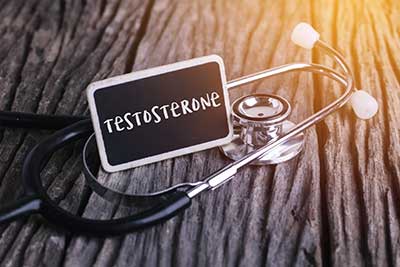Testosterone levels in men don’t stay the same as they age. The condition known as andropause is far more common than many people realize.
As men get older, their levels of testosterone tend to wane. There are some factors that can lead to a higher chance of decreased testosterone and many of those factors also tend to become more common with advanced age. In most modern nations, the prevalence of andropause is quite high, so men who suffer from the condition should not be embarrassed to seek medical help. There are certain methods to combat low levels of testosterone, and there are medications that can ease the natural strain on the body.
When Does Andropause Occur?
In a sense, andropause is an unavoidable aspect of male life, much the way menopause is unavoidable for women. At age 30, men start to lose roughly 1 percent of their testosterone per year. Basic math shows that by age 50, the average man has lost 20 percent of his peak natural testosterone. For some men, the change starts earlier, and for some, it starts later. Some men experience more than a 1 percent loss per year, while others experience the loss of only a fraction of a percent each year. However, there is a growing prevalence of decreased testosterone levels in men throughout the spectrum. The majority of men won’t notice any real difference in their daily life or sense of energy with the loss of a few percentage points, but as those losses build up over the years, they become more apparent. That’s why most men wait until they are in their mid-40s or 50s before seeking a diagnosis or any sort of treatment.
How Common Are Low Testosterone Levels?

Andropause Risk Factors
The most common risk factor for those who might experience more aggressive forms of andropause is diabetes. Roughly 12 percent of men who experience noticeable andropause also have diabetes, where the next highest risk factor is obesity with a little less than one percent occurrence. Other risk factors include common conditions like ischemia, kidney disease, epilepsy, HIV, cancer, cystic fibrosis, Sickle cell disease and intestinal diseases. Exposure to radiation and certain drugs also has the potential to exacerbate andropause symptoms. There are also a number of congenital defects that can eventually lead to lower levels of testosterone, such as androgen resistance, testosterone biosynthesis errors and Noonan’s syndrome.
Fighting Andropause
Fortunately, there is no reason to continue living with low levels of testosterone once the problem has been identified. Those who prefer natural treatments in favor of artificial or processed drugs should consider a Malaysian herb from the rainforest called Tongkat Ali (Eurycoma longifolia). This herb has shown promising results when administered to those suffering from andropause and it does so without disrupting the body’s natural ability to produce the androgen. In fact, the herb contains no testosterone itself, but instead spurs on the body to produce more of its natural testosterone. Another viable option is hormone replacement therapy, or HRT. This is ideal for those with congenital defects that cause the inability to produce testosterone because it is possible that regular foreign sources will disrupt the body’s ability to produce its own testosterone.





